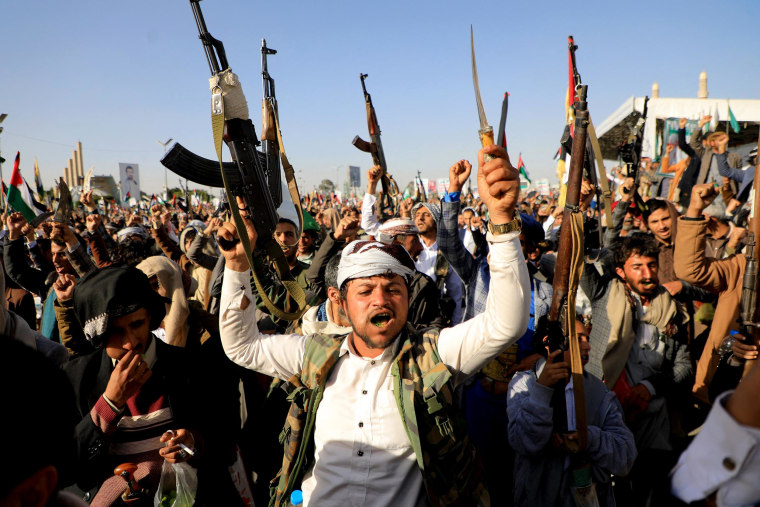The U.S has designated the Houthi rebel group as a terrorist organization, a move that comes after the Yemen-based militants launched scores of drone and missile attacks on U.S. military ships and commercial vessels operating in the Red Sea.
"These attacks fit the textbook definition of terrorism," national security adviser Jake Sullivan said in a statement released Wednesday. "They have endangered U.S. personnel, civilian mariners, and our partners, jeopardized global trade, and threatened freedom of navigation."
After Israel began to bomb Gaza in retaliation for Hamas' Oct. 7 terror attack, the Houthis declared support for Hamas and started launching missiles at Israel and bombarding ships in the Red Sea.
The U.S. and its allies have responded with strikes on sites the Iran-backed Houthis control in Yemen.
Sullivan described the designation as "an important tool to impede terrorist funding to the Houthis, further restrict their access to financial markets, and hold them accountable for their actions."
"If the Houthis cease their attacks in the Red Sea and Gulf of Aden, the United States will immediately reevaluate this designation." he added.
The designation will take effect in 30 days, Sullivan said, to give the U.S. time to limit the impact on the people of Yemen. "The people of Yemen should not pay the price for the actions of the Houthis," he said.
The Houthis, a large clan originating from Yemen’s northwestern Saada province, are an extremist movement that follows Zaydism, a branch of Shiite Islam.
After the Arab Spring protests erupted in several countries in 2011, the group took control of the province of Saada. Three years later, its fighters swept into the capital, Sanaa, and forced President Abed Rabbo Mansour Hadi’s government into exile.
Neighboring Saudi Arabia, unwilling to accept the prospect of Yemen's being controlled by a militant organization backed by its regional rival, Iran, responded by starting a war against the group.
But despite support from the U.S., Britain and several other nations, who armed the Saudis with fighter jets and bombs and provided them with military expertise, the conflict lasted far longer than expected and proved costly for Riyadh. With little hope of victory, Saudi Crown Prince Mohammed bin Salman scaled back his military operation and entered peace talks with the Houthis last year.

